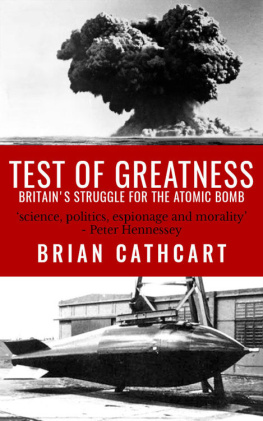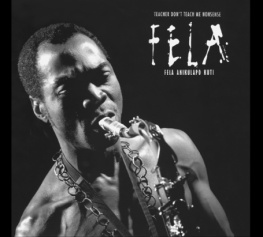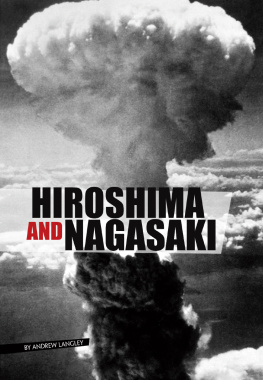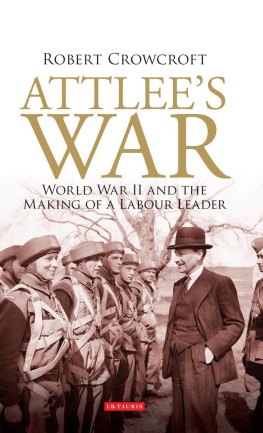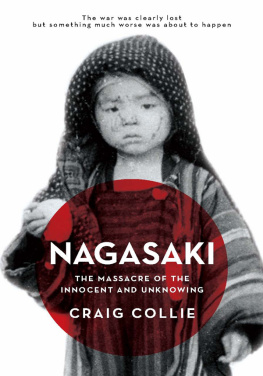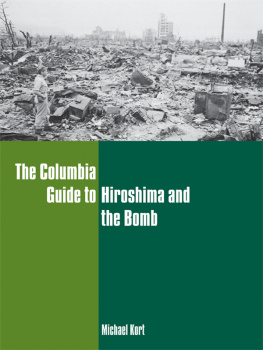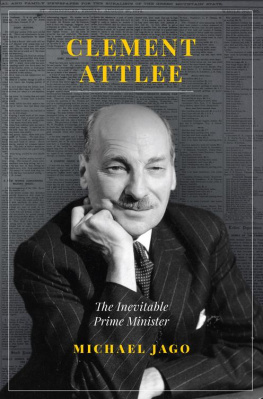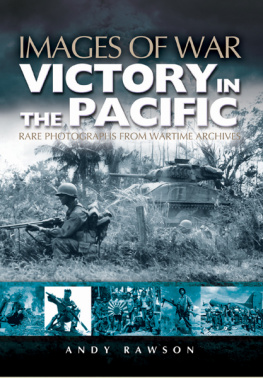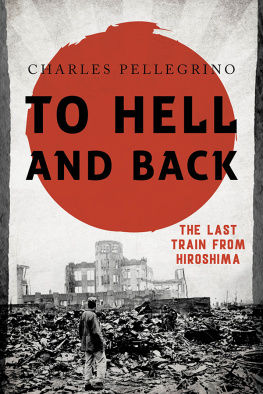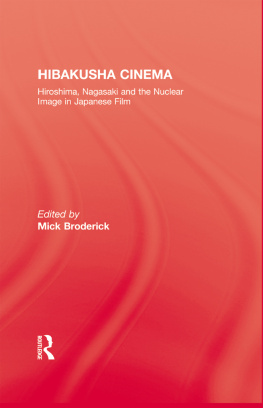Cathcart - Test of greatness : Britains struggle for the Atom bomb
Here you can read online Cathcart - Test of greatness : Britains struggle for the Atom bomb full text of the book (entire story) in english for free. Download pdf and epub, get meaning, cover and reviews about this ebook. City: London, year: 1994, publisher: Endeavour Press;Murray, genre: Science. Description of the work, (preface) as well as reviews are available. Best literature library LitArk.com created for fans of good reading and offers a wide selection of genres:
Romance novel
Science fiction
Adventure
Detective
Science
History
Home and family
Prose
Art
Politics
Computer
Non-fiction
Religion
Business
Children
Humor
Choose a favorite category and find really read worthwhile books. Enjoy immersion in the world of imagination, feel the emotions of the characters or learn something new for yourself, make an fascinating discovery.
Test of greatness : Britains struggle for the Atom bomb: summary, description and annotation
We offer to read an annotation, description, summary or preface (depends on what the author of the book "Test of greatness : Britains struggle for the Atom bomb" wrote himself). If you haven't found the necessary information about the book — write in the comments, we will try to find it.
Cathcart: author's other books
Who wrote Test of greatness : Britains struggle for the Atom bomb? Find out the surname, the name of the author of the book and a list of all author's works by series.
Test of greatness : Britains struggle for the Atom bomb — read online for free the complete book (whole text) full work
Below is the text of the book, divided by pages. System saving the place of the last page read, allows you to conveniently read the book "Test of greatness : Britains struggle for the Atom bomb" online for free, without having to search again every time where you left off. Put a bookmark, and you can go to the page where you finished reading at any time.
Font size:
Interval:
Bookmark:
Test Of Greatness: Britains Struggle for the Atom Bomb
Brian Cathcart
Copyright Brian Cathcart 1994
The right of Brian Cathcart to be identified as the author of this work has been asserted by him in accordance with the Copyright, Designs and Patents Act, 1988.
First published in the United Kingdom in 1994 by John Murray Ltd.
This edition published in 2016 by Endeavour Press Ltd.
For Ruth , Thomas and Patrick
Table of Contents
Acknowledgements
Many people helped with the preparation of this book, but there is one group without whose co-operation it could not have been written: the veterans of the atomic bomb project who allowed me to draw on their memories of events forty-odd years ago. I must thank them first: Leonard Bunce, Pat Cachia, John Challens, John Corner, John Davies, David Deverell, Geoffrey Ellis, Frank Hill, James Hole, Edward Howse, William Lord, William Moyce, Noah Pearce, Herbert Pike, the late Roy Pilgrim, Frank Roberts, Sir John Rowlands, John Tomblin and Aubrey Thomas. I believe they represent as fair a cross-section as is possible of William Penneys staff, although I am conscious that there are likely to be some individuals and activities that I have neglected. That I was able to make contact with them, and that they felt free to talk to me within certain security constraints I owe to Michael McTaggart of the Ministry of Defence, who was most generous with his assistance. I must stress, however, that this is not an official history, and neither Mr McTaggart nor the Ministry nor indeed the veterans themselves bear any responsibility for the final text. All inferences, interpretations, opinions and errors are entirely my own.
I also received help from others who were not on the staff of High Explosive Research but who were none the less directly involved in some of the events the book describes. These were: Rear Admiral David Torlesse, Charles Scott, Dan OSullivan, Derrik Littler, Lord Sherfield, Lady Penney, Sir Rudolf Peierls, the late Lord Cheshire and Alfred T. Goble. Other historians of the period provided help and guidance: Margaret Gowing, Ferenc Morton Szasz, Peter Hennessy, Denis Richards, my colleague Robert Milliken and, above all, Lorna Arnold, whose kindness knew no bounds and whose observations on the work in progress were always shrewd and enlightening. The staffs of several libraries and archives assisted, notably those of the Public Record Office, the British Library, the library of the Australian High Commission in London, the archives of the Los Alamos National Laboratory, the library of the Royal Society of London, the Centre for Kentish Studies and the archives of Imperial College and of the 1851 Commission. I am not a scientist, and relied heavily on others for scientific and technical guidance. Professor D. M. Edwards of Imperial College helped me on Penneys early scientific career, while my colleague Tom Wilkie, Science Editor of The Independent , saved me many times from confusion. Bill Lord, whose memoir was among my most valuable sources, also devoted much time and effort to reading the manuscript and suggesting changes. Again, however, the responsibility for any errors in the final text is entirely my own. Help and support of various kinds was given by David Tyte, Neill Griffiths, Patrick Ahmat, Dr G. Hooper, Wyn Llewelyn, Margaret St John, Hilda Morgan and Michael Roscoe (who drew the maps), and by Peter Wilby and Ian Jack, respectively Deputy Editor and Editor of the Independent on Sunday .
To all I offer my thanks.
To my father I am doubly indebted. He read the manuscript and suggested some significant changes, but more importantly it was he who taught me the love of history.
Finally and above all others, I must thank my wife. This project would never have reached completion without her generous advice, encouragement and assistance. These she provided despite my poor judgement in starting out just as our sons were arriving on the scene. To her and to them, with love and gratitude, the book is dedicated.
Brian Cathcart
London, 1994
*
A Note on Sources
The principal sources for this book fall under three headings: published material, official documents and the recollections of some of those involved. The published works are listed in the Bibliography or, in some cases, are identified in the footnotes. The official documents are scattered through many files in the Public Record Office in London but the main groupings are in the records of the Ministry of Supply, the Admiralty and the Cabinet Office. A further, very large collection of papers relating to Operation Hurricane is to be found in file DEFE16, assembled for the Australian Royal Commission into British Nuclear Tests in Australia in 1984-5. The recollections of veterans of the Manhattan Project, HER and Operation Hurricane, and of others associated with them, were gathered largely in a series of interviews and in correspondence during 1991-3. In a few cases, unpublished memoirs or diaries were made available. No private Penney papers survive; he did not keep records systematically, and destroyed what he had before his death in 1991.
Abbreviations
AEC Atomic Energy Council
AERE Atomic Energy Research Establishment (Harwell)
ARD Armament Research Department
ARE Armament Research Establishment (ARDs title after 1948)
ASIO Australian Security and Intelligence Organization
BHER Basic High Explosive Research
CSAR Chief Superintendent, Armament Research
CSHER Chief Superintendent, High Explosive Research
HER High Explosive Research (shortened form of BHER)
HMAS Her Majestys Australian Ship
HUREX Hurricane Executive
RAAF Royal Australian Air Force
RAF Royal Air Force
RE Royal Engineers
REME Royal Electrical and Mechanical Engineers
Prologue
The discriminative test for a first-class power is whether it has made an atomic bomb and we have either got to pass the test or suffer a serious loss in prestige both inside this country and internationally.
William Penney, 1951
On a clear day in the middle of October 1950, a lone Mosquito aircraft of the Royal Australian Air Force flew low over the Monte Bello Islands, off the north-west coast of Australia. When it had completed one pass, the aircraft banked over the sea, turned and crossed back over the islands. Then it returned again and made another pass. The manoeuvre was repeated, and repeated, a dozen times or more before eventually the pilot broke off and headed back to the mainland.
There were no eyewitnesses to this event, for the islands were uninhabited. Once, on a spring day, pearl divers would have been at work in the shallows round about. Later, for a time, a handful of people camped on the islands for a few months each year to hunt turtles. But by 1950 those days were gone and the islands rarely saw a visitor. This was as had been hoped, for the Mosquitos mission was part of a secret operation, a matter so sensitive that although the prime ministers of Britain and Australia had exchanged letters about it, they had chosen not to mention it to their Cabinets. In Australia the number of people who knew about this operation could be established precisely: there were twenty-six, and not one of them was out in the far north-west. The Mosquito aircrew had no idea why anyone had wanted them to take aerial photographs of the Monte Bellos.
A few weeks later another unusual event occurred in the area, this time before an audience. On the afternoon of 8 November an RAAF Dakota landed at the airstrip outside Onslow, the nearest port to the Monte Bellos on the Australian coast. It brought a party of five visitors, all dressed in Australian army bush gear. They were a curious collection. In charge was Air Vice-Marshal Edward Dizzy Davis, a tall figure of considerable girth who as a young man had fought at Gallipoli. He was now retired from the RAF and working as a senior official at the Ministry of Supply in London. Next to him in seniority was a lanky, angular man in his forties with a large nose and prominent front teeth. This was Charles Adams, a scientist from a little-known Ministry of Supply establishment in Kent. His speciality was the development of equipment to observe and record events which lasted for only a tiny fraction of a second. With Davis and Adams were two young naval officers, Lieutenant Charles Scott of the Royal Navy and Lieutenant-Commander Tony Cooper of the Royal Australian Navy. Both were hydrographers, or makers of navigational charts. Last of the group was Max Phillips, representing the Australian Security and Intelligence Organization, his countrys equivalent of MI5. They had come from Perth, a flight of several hours, and after disembarking and stretching their legs they made their way down into Onslow, where they were to spend the night.
Next pageFont size:
Interval:
Bookmark:
Similar books «Test of greatness : Britains struggle for the Atom bomb»
Look at similar books to Test of greatness : Britains struggle for the Atom bomb. We have selected literature similar in name and meaning in the hope of providing readers with more options to find new, interesting, not yet read works.
Discussion, reviews of the book Test of greatness : Britains struggle for the Atom bomb and just readers' own opinions. Leave your comments, write what you think about the work, its meaning or the main characters. Specify what exactly you liked and what you didn't like, and why you think so.

